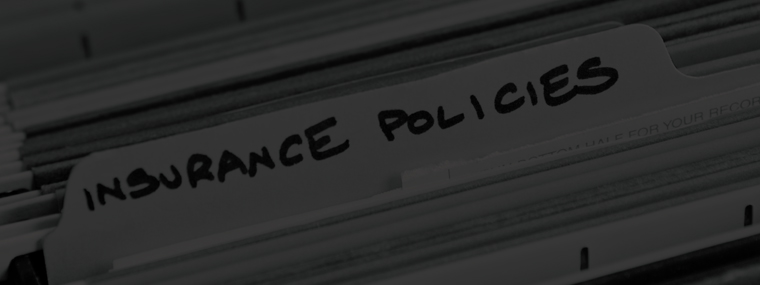
Insurance to the Rescue
By Diane M. Calabrese

I
nsurance Basics
A favorite pen cannot be found. That’s a loss. Yet the cost of replacing the pen will not throw a budget out of equilibrium. When portable electronic devices go missing or are irreparably damaged, the cost of replacement goes up considerably. And when the equipment required to get the job done—from pressure washers to service trucks—is damaged or goes missing (stolen), the cost of replacement can be prohibitive without insurance to help.
An insurer can provide help because it pools premiums from policyholders, manages the pooled money wisely, and evaluates claims carefully. Losses must meet stipulated conditions to be covered. For instance, a pressure washer may be insured for damage at a jobsite (e.g., from falling bricks), but not for damage caused by a misuse at a jobsite.
Contractors, distributors, and manufacturers all benefit from having insurance. Federal law requires that employers pay workers’ compensation and unemployment insurance premiums, although rates are typically set by the experience in each state. In certain states—California, Hawaii, New Jersey, New York, Rhode Island—and the U.S. territory of Puerto Rico, disability insurance premiums are also the responsibility of the employer. Beyond that, the business owner must evaluate insurance needs and decide what to purchase.
To start, consider what contractors confront. “Many people think that understanding insurance is similar to cracking The Da Vinci Code,” says Tom Svrcek, president of Joseph D. Walters Insurance Agency in Belle Vernon, PA, a company that has tailored a program to assist power washing contractors in meeting their unique insurance requirements.
“Policies from many carriers have coverage restrictions, loopholes, and policy limitations based on what the contractor is doing,” says Svrcek. “Be careful.” Caution in purchasing insurance will result in the power washing contractor getting the best fit between premiums and coverage. “What generally happens is when a new guy goes into business, his number one priority is to obtain a certificate of insurance to start his first job,” says Svrcek. “The problem is that the guy doesn’t know what coverages he needs.”
In reality, explains Svrcek, there’s no reason a new business owner should have a precise knowledge of which coverages to secure. That problem is compounded by the fact that most insurance agents do not specialize in power washing contractors.
A contractor should begin looking for coverage by contacting an insurance company with experience in the power washing industry. “If you don’t buy insurance from someone who knows the industry, someday you’re going to be in trouble,” says Svrcek. The trouble will come because the insurance the contractor has in hand will not be a match for the loss or damage.
“To have a good insurance program, you have to deal with specialists that know what they’re talking about,” says Svrcek. “Just as important, you need to communicate often to your insurance agent.” The agent must know about changes that occur in the contractor’s business, such as a new focus in type of work performed. “Make sure your agent knows your business,” says Svrcek. The biggest mistake contractors make is “not dealing with an agency or agent that knows their business.”
The agent and the party seeking insurance share the same interest in getting the appropriate policy. “Our number one job when you call our agency about a claim is to be able to say, ‘Yes, you are covered properly, and, yes, we will handle everything,’” says Svrcek. It’s possible to do that when the insured business has communicated thoroughly with the insurer from the start.
“No claimant ever called me with a large claim and said, ‘I’m the guy that wanted cheap insurance,’” explains Svrcek. The owner who is properly insured has taken time to discuss needs and purchase the best coverage. The insured business can shop for the best policy by looking not only at the premium and the coverage, but also by considering whether there are special considerations for customers. For example, Svrcek’s firm can offer options, such as guaranteed pricing, which is no premium increases due to increasing operation, as well as a no audit option and more.
Advice From Policyholders
“Insurance needs should be reevaluated at a minimum of once a year and before your renewal date,” says Doug Rucker, owner of Clean and Green Solutions in Porter, TX. “You should also reevaluate any time you are adding a new service type to your business.”
Among the sorts of insurance coverage that Rucker considers essential are general liability, commercial auto, and workers’ compensation. Some-times an umbrella policy is needed too, he explains.
The easiest way to keep policies up-to-date is by “keeping communications open with your agent,” says Rucker. He uses Svrcek’s agency and explains that he is able to get questions answered quickly by phone or e-mail.
Responsiveness is important, says Rucker. “One of the biggest needs for contractors is the timeliness with which an agent can get the COI [certificate of insurance] to a client.”
The award of a contract can often be won or lost “by the responsiveness of the agent in faxing or e-mailing the COI to a contractor’s client,” says Rucker. He reminds fellow contractors to be sure to ask prospective insurance agents about how quickly they can respond to a request for a COI. “Then, hold them accountable to their answer.”
Rucker says that his insurer will fax the COI within minutes of his request. “This has caused us to be awarded many contracts strictly based on the fact that the client is no longer waiting for proof of insurance,” he explains.
“We review our insurance annually,” says Michael Hinderliter, president of Steamaway, Inc. in Fort Worth, TX. “Sometimes we have coverage we no longer need and realize we have items that should be covered.”
Guidance for review comes in part from customers. “We go by what our customers require us to carry for contract cleaning,” says Hinderliter. “When it comes to selling goods, we carry what will protect us from excessive loss.”
Hinderliter cites workers’ compensation, general liability, and auto insurance as essential. Among coverages that can also be useful, he lists garage keeper’s liability, bond, product liability, property insurance, and environmental insurance.
“Garage keeper’s liability is good for moving customers’ equipment,” says Hinderliter. “Since we do a lot of truck washing, that sometimes requires that we move the trucks; this protects us in the event of an accident. Bond covers us in the event of an employee that may get sticky fingers—taking something out of a truck or removing items from a kitchen in a restaurant,” he continues. “Product liability is for when you are selling equipment and supplies. Property insurance is for when you have customers and the public on site.”
Hinderliter also recommends contractors consider environmental insurance. The coverage would help recover from a pollution-related incident related to the contractor’s work.
Not only must a contractor, distributor, or manufacturer have the necessary coverage, but he also must budget for it. Definitely reevaluate coverage if there is an unreasonable increase in a premium, says Daryl Mirza, president of Averus in Gurnee, IL. “Most business insurance has been declining as long as you have no claims, but health and workers’ compensation are on the rise.”
Like Rucker and Hinderliter, Mirza cites business liability, workers’ compensation, and vehicle insurance as must haves. He says that paying the premiums takes between 2.5 percent and 4.5 percent of total sales. Depending on the size of the company, or if it has 50 or more employees, the firm may already fall under the mandate of the Affordable Care Act to provide health insurance.
“Health insurance is going to become a bigger and bigger problem,” says Mirza. “We just had our health insurance go up 20 percent two years in a row. I remember family health care being at $700 a month. Now it’s more than $2,000 in less than four years. I wish I could raise my prices like that.” Take advantage of the help that’s available to meet insurance requirements. “We utilize our brokers to make sure we are up to date and compliant,” says Mirza.
Helpful Tools
The U.S. Small Business Administration (SBA) summarizes essentials of insurance. See www.sba.gov/content/business-insurance to learn about the types of business insurance, insurance requirements for employers, tips for buying, and resources.
Among the tips are a few crucial reminders. For instance, when talking with a prospective agent, a contractor, distributor, or manufacturer must be candid about risks. Never portray business activities as less risky than they are, such as saying lifts or ladders are never used when they are used occasionally.
At the same time, the business owner must honestly assess risk tolerance. Is a higher deductible worth a lower premium, or could the deductible be so high that it would pose a financial setback to meet it?
Finally, the SBA recommends using as much care to choose an insurance agent as is used to select an accountant and lawyer. And look for a licensed agent. The National Association of Insurance Commissioners (https://eapps.naic.org/cis) in Washington, D.C., is a good non-governmental resource for information about insurers. One can use the NAIC website to check the performance and credentials of an insurer.




